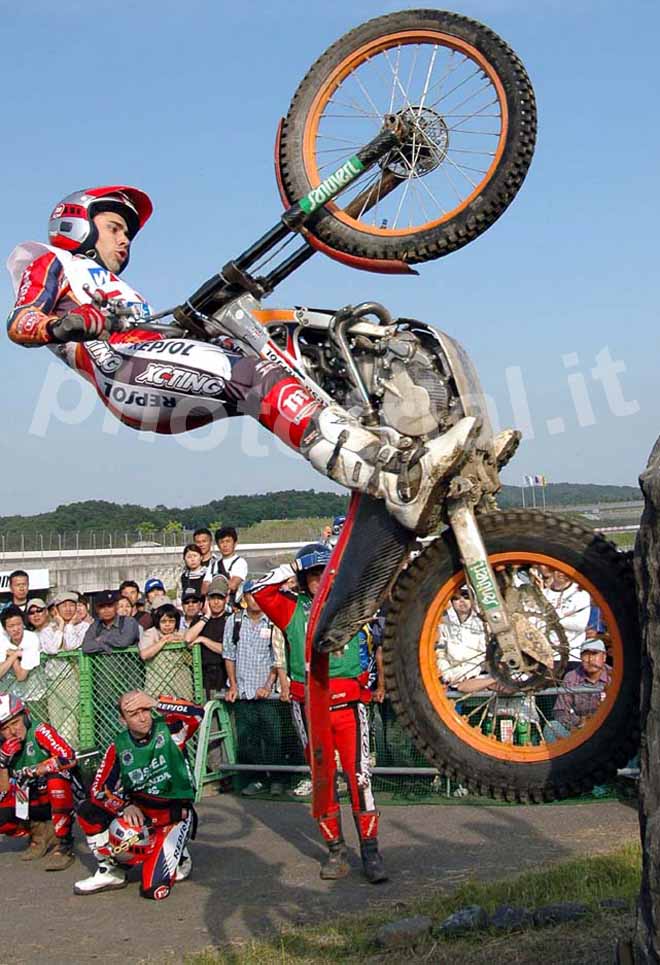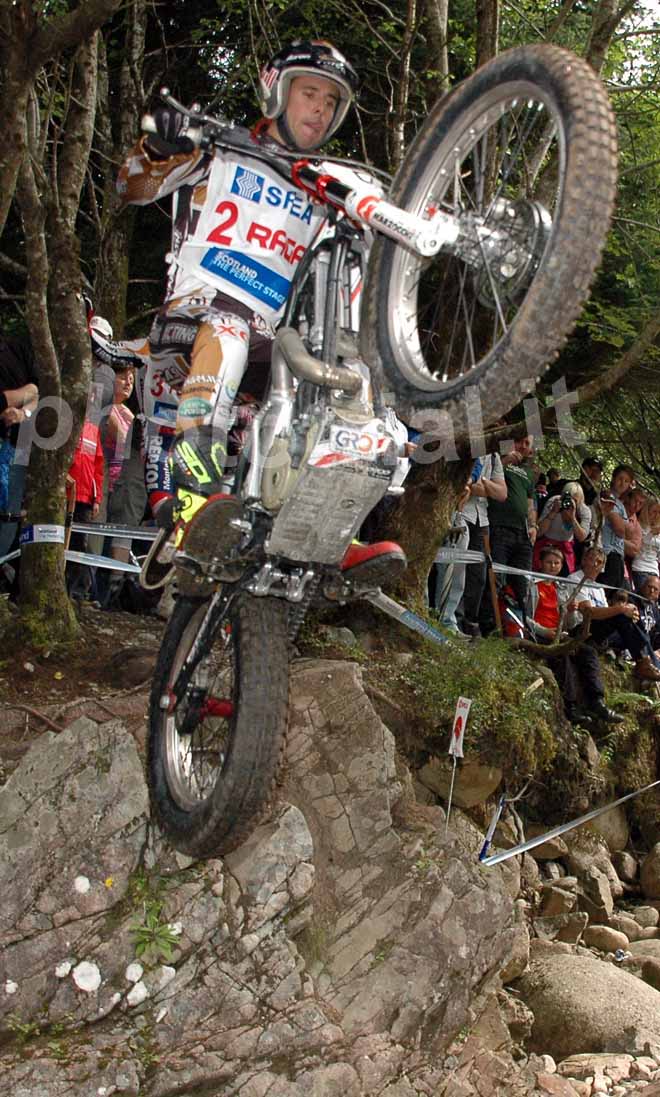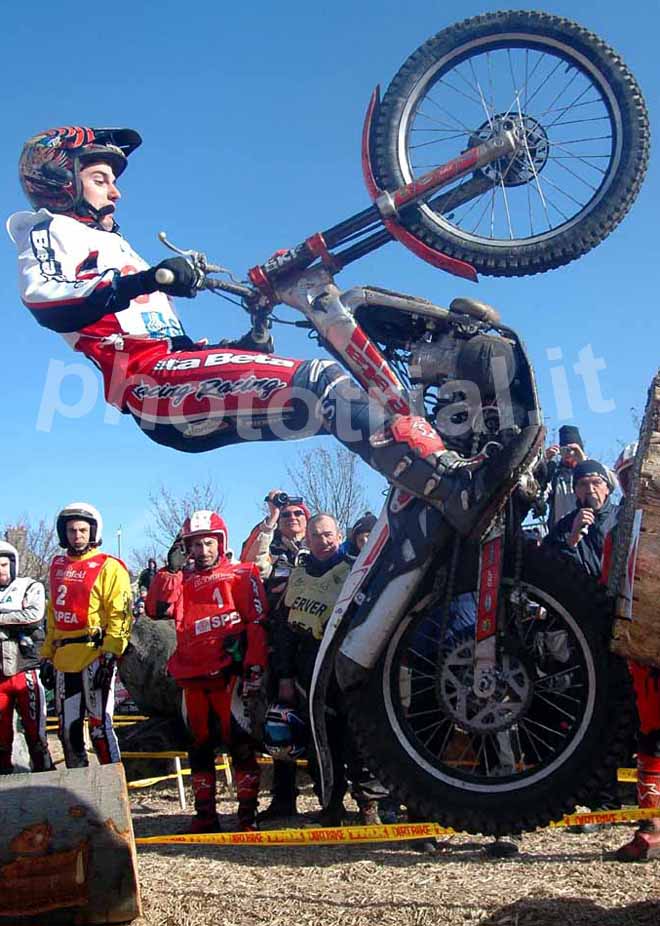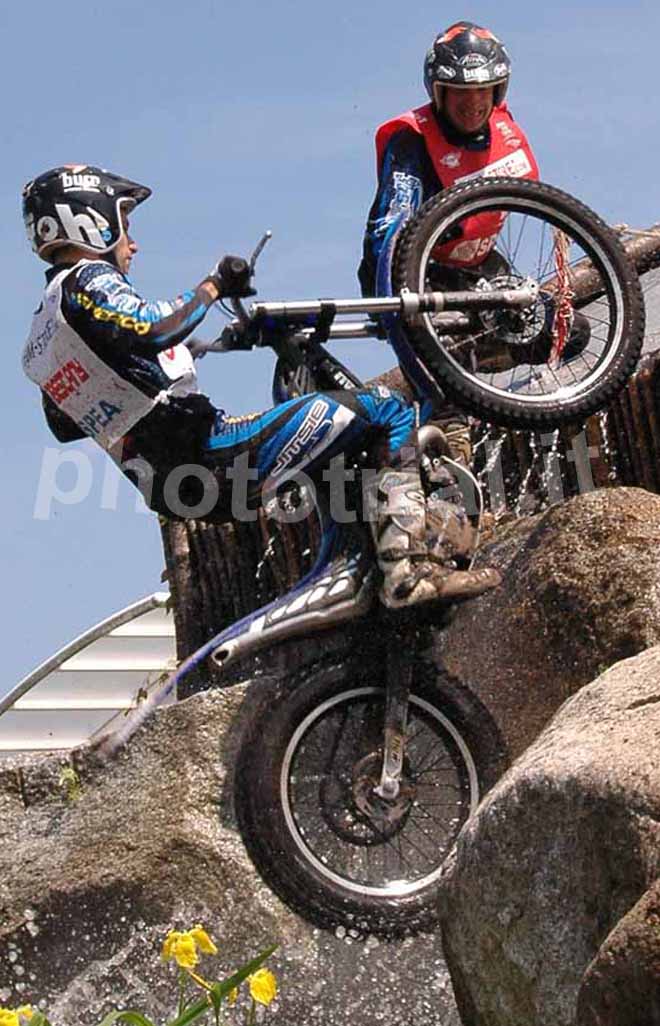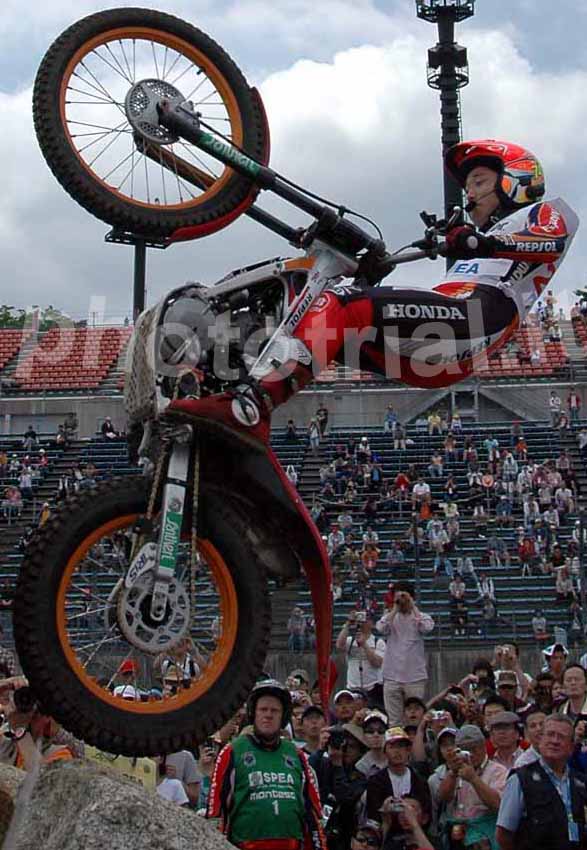16/09/15 - NO STOP: WHAT'S GOING ON THREE YEARS LATER?
We are two days from an important meeting between the Factories and the FIM , scheduled for September 18th in Hospitalet de l' Infant ( Tarragona ) , Spain , the eve of the Trial des Nations.
Time for evaluation hopefully, after the stubborn confirmation of non-stop rules, rejected in the main national federations , the world of Trials is expecting more common sense. Three years have passed but the perception is that we even wasted more time, for this careless choice , then carried on with dogged conviction.
But It is not just the regulations which contributed to create disinterest in public that once came in large number to attend the world round in their nation: this year we have touched historic lows. Not to mention also the number of riders: the 125cc category was never so poor of participants . And therefore it's more than obvious that the no stop Trials is not liked by young generation and it does not match the audience's expectations.
But returning to the good old regulation with the possibility of going back , feet up of couse ( adopted by Spain , France and Italy for instance) will certainly not be enough. Trial continues not to be seen on the "big screen" . Local or national televisions must pay a lot to the FIM ( this year to Dorma ) for getting the permission to film . But please, let us realize that we are not only one step back , but a hundred steps back . You can't think of selling TV rights unless you have created an expectation for the sport in question. How many TVs have paid and then broadcasted the shooting of the world rounds in this season ? We are very curious to know!
A starting point to quickly recover the ground lost with the wrong regulation is to liberalize the video shoots , so that the epic deeds of our top riders can be immediately propagated throughout the world , thanks to our modern media. Most of the people still have to know what Trial is. Distinguish it from Motocross . Find that there is a large physical component.
We have to try to enter into schools, gyms , places attended by young people . First, to create an interest and then let them try a trial bike , as well as in the old days , on the occasion of important events.
Federations must reduce costs , because the economic crisis is almost everywhere. Simplify bureaucracy and lower licensing costs . And then it is also important to encourage the amateur field , the one that currently takes up the whole market . Lower taxes to moto clubs to organize events and more freedom to compete in the European Community . National licenses that implicitly are permanent permission to enter competition abroad are still made ONLY in Germany , Austria and Switzerland . Why?
So it is necessary for all of us , or rather , those are keen and have made the trial their first passion , to work together to find common paths that will bring our sport to the level it deserves.We are available to promote , support and disseminate meaningful initiatives aimed at achieving this goal.
And ... do not worry if you have made ??mistakes: just be able to recognize your mistakes , only those who try to do something can go wrong . We are not here to crucify anybody , but to try to start over together.
------------------------------------------------------------------------------------------
NO STOP: COME SI EVOLVERA' TRE ANNI DOPO?
Siamo a due giorni da un' importante riunione fra le Case e la FIM, pianificata per il 18 settembre in quel di Hospitalet de l'infant (Tarragona), Spagna, vigilia del Trial delle Nazioni.
Tempo di bilanci si spera , dopo l’ostinata conferma al regolamento non-stop, bocciato nelle principali federazioni nazionali, tutto il mondo del Trial attende un po’ di buon senso. Sono passati tre anni ma la percezione è che se ne siano persi molti di più, per l' incauta scelta, poi portata avanti con ostinata convinzione.
E non si tratta solo del regolamento che ha contribuito a creare disinteresse nel pubblico che un tempo correva in massa per assistere alla prova mondiale della propria nazione: nelle gare mondiali di quest’anno si sono toccati i minimi storici. Per non parlare anche del numero di piloti, la categoria 125cc è mai così scarsa di partecipanti. E' dunque più che palese che il trial non stop non piace ai giovani e non attira il pubblico.
Ma tornare al buon vecchio regolamento con possibilità di arretrare, se coi piedi sulle pedane (adottato da Spagna, Francia ed Italia tanto per intenderci) sicuramente non sarà sufficiente. Il Trial continua a non vedersi sul grande schermo. Le TV locali o nazionali devono pagare fior di diritti alla FIM (quest’anno alla Dorma ) per avere il permesso di filmare. Ma rendiamoci conto che qui siamo non un passo indietro, ma cento passi indietro. Non si può pensare di vendere dei diritti televisivi, se prima non viene creata un’aspettativa per lo sport in oggetto. Quante TV hanno pagato e poi trasmesso le riprese del mondiale? Saremo tanto curiosi di saperlo!
Un punto di partenza per recuperare in fretta il terreno perduto con il regolamento sbagliato è liberalizzare le riprese video, in modo che le imprese epiche dei nostri top rider possano essere immediatamente propagate in tutto il mondo, grazie ai moderni mezzi di informazione. La maggior parte della gente deve ancora sapere cosa è il Trial. Distinguerlo dal Motocross. Scoprire che c'è una grossa componente fisica.
Si deve entrare nella scuole, nelle palestre, nei luoghi frequentati dai giovani. Creare un interesse e poi fare provare una moto da Trial, come anche si faceva un tempo, in occasione di manifestazioni importanti.
Le federazioni devono contenere i costi, perchè è tempo di crisi un po' ovunque. Semplificare la burocrazia ed abbassare i costi delle licenze. E poi anche il settore amatoriale, quello che attualmente tiene in piedi tutto il mercato, lo si deve favorire. Meno tasse ai moto club e più libertà di correre all'interno della Comunità Europea. Le licenze nazionali che valgono implicitamente come nulla osta permanente sono sempre solo quelle tedesche, austriache e svizzere. Tempo fa in Italia il motivo addotto alla non concessione di un permesso permanente è stato quello di non potere ritirare la licenza al pilota per eventuali scorrettezze. Ma oggi il pilota squalificato può essere segnalato immediatamente con mezzi d'informazione in tempo reale!
Insomma è necessario che tutti noi, o meglio, tutti coloro ci tengono ed hanno fatto del Trial la loro prima passione , collaborino per trovare delle strade comuni che riportino il nostro sport al livello che merita.
Noi siamo a disposizione per promuovere, sostenere e divulgare iniziative sensate atte a perseguire questo scopo.
E...non preoccupiamoci se si sono fatti degli errori : basta saper riconoscere i propri sbagli, solo chi prova a fare qualcosa in fondo può sbagliare. Noi non siamo qui per crocifiggerlo, ma per provare tutti insieme a ricominciare.
